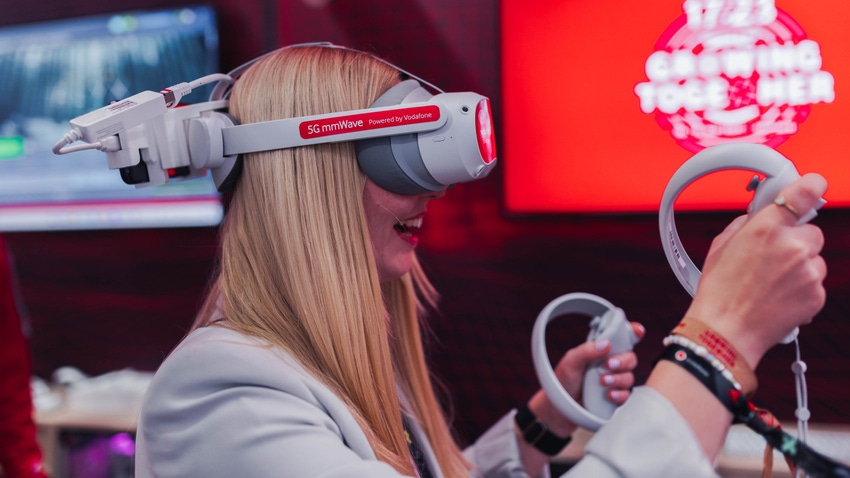Eurobites: Vodafone offers livestreaming of the metaverse
Also in today's EMEA regional roundup: Arm unveils the Cortex-M52; Ericsson and friends run with RedCap; Hexatronic downgrades short-term outlook.

Vodafone Germany is hoping to make hay in the metaverse with the launch of XR Stream, a cloud-based platform that enables companies, artists and others to add immersive experiences to their events. Vodafone will combine its 5G-based metaverse expertise with livestreaming software developed by Inventive Studios, a Berlin-based motion capture specialist. Vodafone has been showing off the system at this week's Content Convention in Mainz.
Back in the real world, Vodafone has produced new research which claims that a speedy rollout of 5G standalone across the UK could be worth as much as £7.4 billion (US$9.2 billion) in additional economic value by 2030 compared to a more desultory one. The number-crunching (carried out by WPI Economics) predicts that the benefits of an accelerated rollout would be most keenly felt in the densely populated southeastern corner of the UK, which could see an additional £790 million ($990 million) accrued by 2030 if the 5G sector pulls its collective finger out.
UK-based chip design giant Arm has launched a new offering for what it calls – new acronym alert klaxon!!! – the Artificial Intelligence of Things (AIoT). Arm says the Cortex-M52 is designed for AIoT applications that require a boost in digital signal processing (DSP) and machine learning (ML) performance without the cost overhead of dedicated DSP and ML accelerators. It's intended to bring AI capabilities to a broader range of AI devices, particularly those smaller, often battery-powered devices such as embedded sensors.
In a similar neck of the IoT woods, Ericsson, Vodafone and Qualcomm have been demonstrating what they say are the first RAN Reduced Capability (RedCap) data calls on a European network. The joint demonstration, held in Ciudad Real, Spain, made use of Qualcomm's Snapdragon X35 platform, which is intended to bridge the "complexity gap" between high-speed mobile broadband devices and low-bandwidth, low-power devices. The RedCap protocol enables connectivity for simpler devices, allowing more devices to connect to 5G networks and transmit data at low power and at lower cost.
Sweden's Hexatronic, which makes its money from supplying products and services for fiber networks, has downgraded its short-term outlook and initiated a cost-saving program that could see up to 160 full- and part-time positions being culled. It now expects that its EBITDA (earnings before interest, tax, depreciation and amortization) margin, excluding restructuring costs, will amount to 12-14% for the second half of 2023, and hopes to shave around 90 million Swedish kronor ($8.57 million) off its costs. The company blames a "continued weakening of the market," particularly in Germany and the US, for its products during the fourth quarter.
BT has expressed its delight at the UK government's commitment – confirmed this week in the chancellor's budget-setting Autumn Statement – to deploy "the world's most advanced quantum network at scale" by 2035. Gabriela Styf Sjöman, BT's managing director of research and networks strategy, said: "Nationwide quantum secure connectivity coupled with early commercialization and an ambition for international quantum networks will be critical enablers of the UK quantum economy."
The value of venture capital funding announced by UK startups in the first ten months of 2023 declined by 43.6% year-over-year, from $21.2 billion to $12 billion, according to new research from GlobalData. The volume of such deals also fell, from 1,483 to 1,098. However, the UK remains the top European market for VC funding activity, says GlobalData. Among the notable deals agreed was the $250 million secured by Builder.ai, an AI-driven app development platform.
Read more about:
EuropeAbout the Author(s)
You May Also Like












